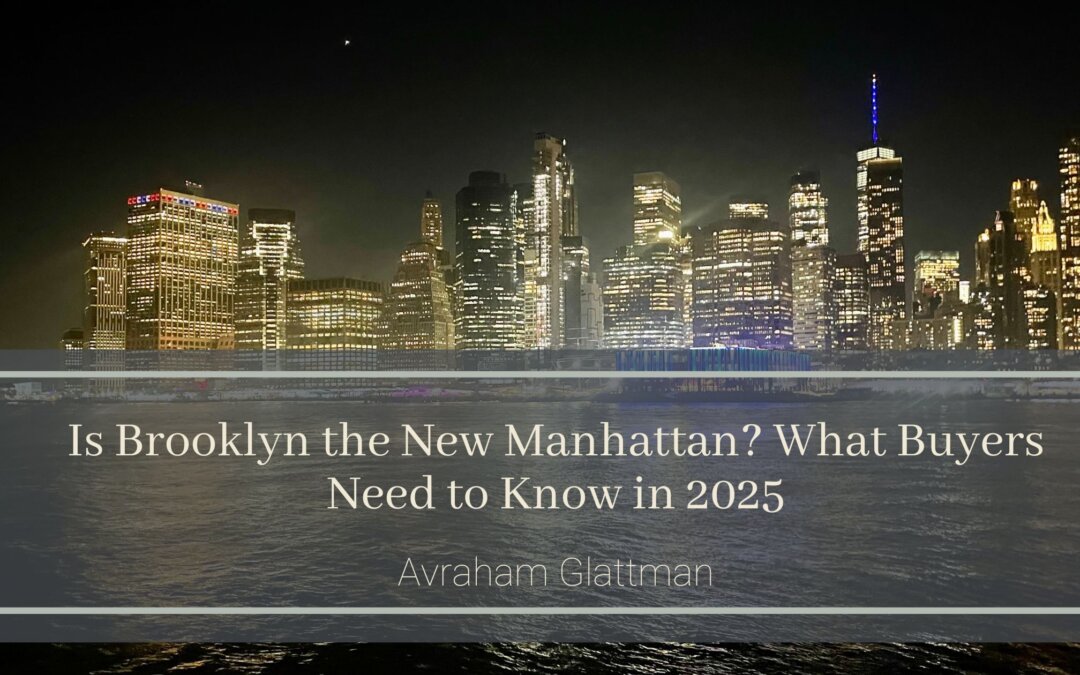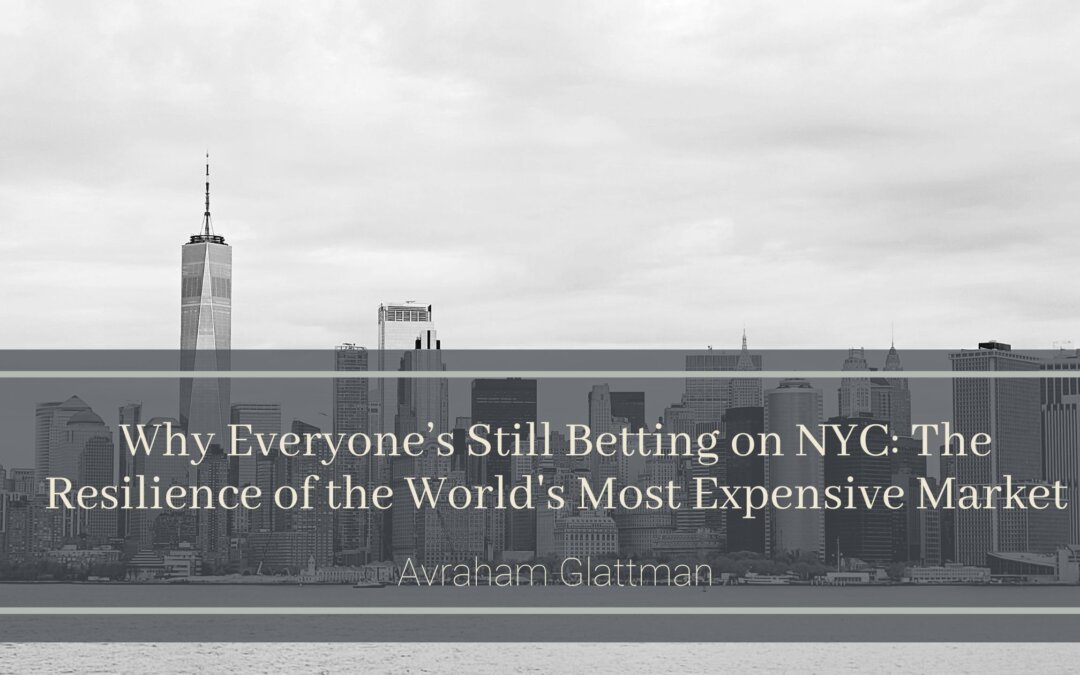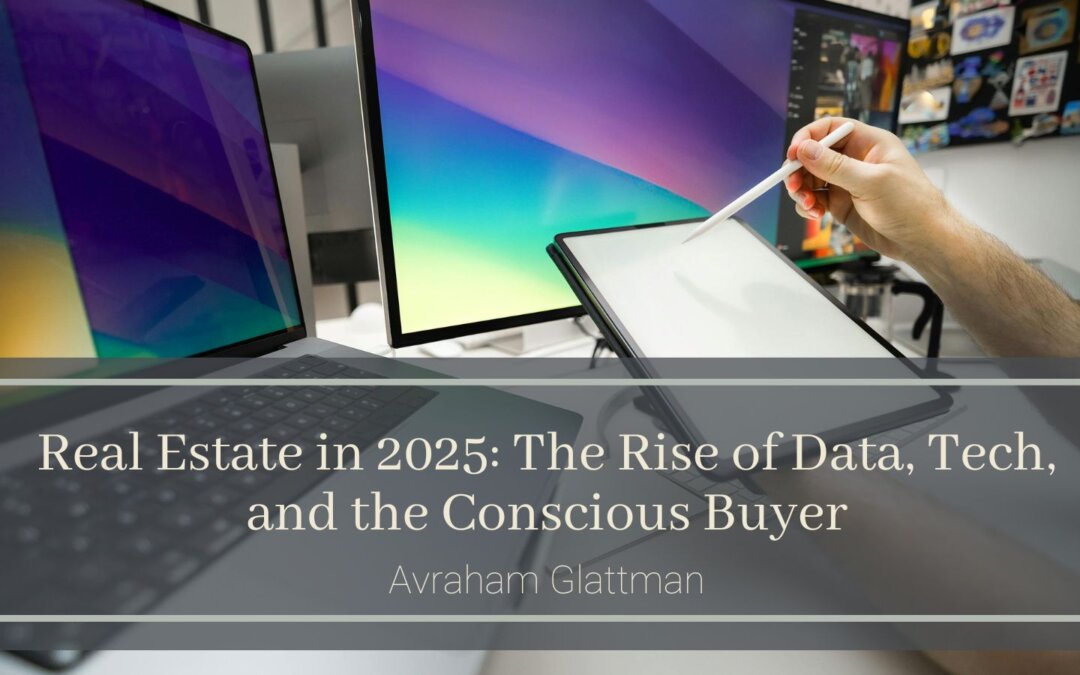
Is Brooklyn the New Manhattan? What Buyers Need to Know in 2025
When people think of New York real estate, Manhattan often comes to mind first — the marquee skyline, high‑end condos, historic brownstones, and prestige that comes with a ZIP code like 10021. But in the past decade, Brooklyn has rapidly transformed from an edgy alternative to a heavyweight contender in the NYC real estate arena.
This shift has profound implications for buyers, renters, and investors — and understanding the dynamics at play is key to making smart real estate decisions in 2025 and beyond.
Brooklyn’s Evolution: From Fringe to Frontline
Brooklyn’s transformation didn’t happen overnight. Once celebrated for cultural coolness — think indie art scenes, local music venues, and artisanal markets — the borough has steadily matured into a sought‑after residential and commercial destination. Neighborhoods such as Williamsburg, DUMBO, and Brooklyn Heights became early pioneers of this shift, attracting young professionals and creatives who valued space, character, and community.
Over time, this trend diffused outward to neighborhoods like Bushwick, Crown Heights, Greenpoint, and Prospect Lefferts Gardens, each offering slightly different vibes and price points but unified by accessibility and urban appeal.
Affordability Relative to Manhattan
One of the biggest drivers of Brooklyn’s rise has been relative affordability — at least historically. While prices have climbed sharply over the last decade, many buyers still perceive Brooklyn as offering more space for the dollar compared to Manhattan.
For example:
- Larger units or multi‑bedroom apartments
- Outdoor space (terraces, gardens)
- Proximity to parks and quieter residential streets
As remote and hybrid work arrangements become normalized, buyers increasingly prioritize lifestyle and living space, making Brooklyn a compelling alternative to dense central Manhattan.
Transportation and Accessibility
Brooklyn’s connectivity to Manhattan via subway lines, ferries, and commuter options further enhances its appeal. Commutes that once seemed long feel shorter when balanced against other quality‑of‑life benefits. Areas near transit hubs — such as Atlantic Terminal and Jay St‑MetroTech — combine convenience with access to employment centers in both NYC and New Jersey.
Development Trends and Real Estate Growth
Brooklyn’s skyline is evolving too. High‑profile developments in areas like Willoughby Square Park and expansions near the waterfront are introducing luxury residential, retail, and commercial spaces that rival Manhattan’s in amenities and design.
For investors, this creates multiple product types to consider:
- Luxury condos near transit or waterfronts
- Mixed‑use developments
- Rental properties that appeal to young professionals
- Adaptive reuse projects in historic districts
Brooklyn’s growth is not homogenous: some neighborhoods still offer value plays with upside potential, while others are firmly established as premium markets.
What Buyers Should Know in 2025
If you’re considering Brooklyn real estate in 2025, here are key factors to keep in mind:
- Price Trajectories Are Neighborhood‑Specific
Not every part of Brooklyn is equal. Some areas may be cooling after rapid appreciation, while others are emerging hotspots due to new infrastructure or community investment. - Lifestyle Priorities Matter
Brooklyn offers diverse living experiences — from quiet, leafy streets near Prospect Park to bustling urban cores near Williamsburg. Define your priorities early. - Rental Demand Is Strong
With NYC’s returning workforce and international residents coming back, demand for rental units remains robust. This is especially true in areas near universities, tech hubs, and transit. - Know the Inventory
New construction, conversion projects, and resale properties all offer different pros and cons regarding price, maintenance, and long‑term value.
Is Brooklyn the New Manhattan?
In some ways, yes — especially in terms of prestige, investment interest, and urban desirability. But Brooklyn’s identity is its own: less about Wall Street power and more about community vibrancy, diversity, and lived experience. For many buyers in 2025, that combination makes Brooklyn not just an alternative to Manhattan, but a primary real estate destination in its own right.

Why Everyone’s Still Betting on NYC: The Resilience of the World’s Most Expensive Market
New York City’s real estate market has long been a symbol of global economic power, cultural magnetism, and investment resilience. While headlines periodically predict downturns, migrations away from cities, or temporary slowdowns, the truth is that NYC remains one of the most robust real estate markets on the planet. From international investors to long‑term residents, the city continues to attract capital and ambition in ways few other markets can match.
A History of Reinvention
The narrative of New York City real estate is defined by reinvention. From the post‑war housing boom to the tech and finance influx of the 21st century, NYC has continually adjusted to economic trends and demographic shifts. Even during the COVID‑19 pandemic — when many residents temporarily left the city — the market didn’t collapse. Instead, it underwent a brief recalibration, followed by a strong rebound in demand when people began returning.
One reason for this resilience is New York’s status as a global hub — a crossroads of culture, finance, media, education, and international diplomacy. For many affluent buyers, owning property in NYC isn’t just about real estate — it’s about prestige, stability, and access to opportunity.
Demand From All Corners of the Globe
International buyers play a significant role in the NYC market. While global investment patterns fluctuate, New York has an enduring appeal. High‑net‑worth individuals from Europe, Asia, and the Middle East often view NYC properties as safe‑haven assets — portable, durable, and historically appreciating over time. These buyers look beyond short‑term market movements, instead thinking long term about value and legacy.
This is especially true in luxury segments. Prime areas like Manhattan’s Upper East Side, Tribeca, and Midtown continue to command premium prices, with luxury condos and historic townhouses being snapped up by buyers who see New York as both home and investment.
The Job Market Drives Housing Demand
Employment trends are deeply tied to real estate demand — and NYC boasts a strong and diversified job market. While finance and media are iconic anchors, tech and life sciences have surged in recent years, bringing high‑paid professionals to the city. Major corporations continue to expand offices in Manhattan and Brooklyn, while startups and creative companies thrive in neighborhoods that blend work and lifestyle.
This influx of talent fuels housing demand from young professionals, families, and relocators — all seeking proximity to dynamic career opportunities.
Neighborhood Transformations and Infrastructure Investments
Infrastructure projects and neighborhood revitalization efforts also bolster the market. Developments like Hudson Yards and the adaptive reuse of industrial zones (e.g., Brooklyn’s Navy Yard) signal long‑term investment in the city’s built environment. Transit improvements, public park expansions, and mixed‑use developments enhance livability — which boosts property values over time.
Why Investors Still Love NYC
Investors, both domestic and international, appreciate New York’s stability. While markets like Miami or Austin have seen rapid valuation growth, NYC’s real estate often acts as the core holding in a diversified portfolio. Rental income potential remains significant, especially as professionals return to urban centers and demand for multifamily housing strengthens.
Moreover, New York rents — even after pandemic adjustments — sit at a premium compared to many U.S. metros, offering attractive cash flow opportunities for property owners.
Challenges and Opportunity
No market is without challenges. High property taxes, complex regulations, and development costs make building and ownership expensive. But these barriers also limit oversupply — a factor that ultimately supports values.
In a world where economic cycles fluctuate, New York City’s real estate market continues to demonstrate remarkable resilience. The city’s cultural significance, employment magnetism, and global investment appeal create a foundation that few markets can replicate. For investors and residents alike, NYC’s property market remains a bet worth making.

Real Estate in 2025: The Rise of Data, Tech, and the Conscious Buyer
The real estate market in 2025 is not the same as it was even five years ago. While interest rates and inventory still drive headlines, the underlying forces shaping today’s market are more nuanced: data-driven tools, digital transactions, and a new kind of buyer — one who’s more informed, value-conscious, and socially aware.
Tech Is No Longer an Add-On — It’s Essential
Today’s real estate experience is digital-first. From AI-powered property recommendations to virtual tours and automated closing workflows, buyers and sellers expect a frictionless process powered by tech.
Real estate agents and brokerages that have embraced platforms like Matterport, Zillow 3D, and CRM-integrated mobile apps are seeing higher engagement and faster closings. Conversely, those still relying on outdated paper processes are losing ground.
And it’s not just about convenience. Predictive analytics now allow investors to assess neighborhood growth potential in real time. Tools that factor in job market data, school ratings, and demographic shifts offer a far more strategic approach to property investment.
The Conscious Consumer Is Changing the Game
Today’s buyers are not just looking for the best square footage per dollar — they’re asking deeper questions. What’s the property’s energy efficiency rating? Are there smart home features that reduce environmental impact? Is the building part of a walkable, bike-friendly community?
Sustainability has moved from niche to mainstream. Homes with solar panels, smart thermostats, and green certifications are not only attracting more attention — they’re commanding premium prices.
Buyers are also doing their homework. With property histories, neighborhood crime stats, and online reviews readily available, transparency is no longer optional. Realtors must be prepared to address everything from flood risk to zoning changes.
Inventory Crunch and Creative Solutions
Despite broader economic challenges, demand remains high — particularly in mid-size cities and affordable suburban areas. The limited inventory continues to push prices up, forcing buyers to act quickly and, in some cases, settle for less-than-ideal homes.
This pressure has given rise to new strategies:
- Build-to-rent communities are booming in the Sun Belt.
- ADUs (Accessory Dwelling Units) are being embraced in states like California and Oregon.
- Modular and prefab homes are gaining traction due to lower construction timelines and costs.
Buyers are becoming more flexible with location — prioritizing fiber internet, home office potential, and quality-of-life over proximity to traditional business hubs.
Real Estate Pros Must Evolve or Fall Behind
In today’s market, agents aren’t just negotiators — they’re advisors, tech guides, and content creators. The most successful professionals are leveraging social media, publishing market insights, and maintaining strong personal brands.
The bar has been raised. The expectation is clear: if you’re in real estate, you need to be as savvy online as you are offline.
About Avraham Glattman
Avraham Glattman is the owner of First American Properties Group, a real estate business based in New York City, New York.
Avraham brings over 26 years of experience working as a real estate agent in the city, where he continues to work today. He graduated from Newport University with a Bachelor’s Degree in Business Administration and Management and remained at the university to attain his Masters of Business Administration (M.B.A.). After graduation, he jumped straight into the real estate field in 1992 in the greater New York City area. Throughout his career, Avraham has explored listings across the New York area, keeping a detailed account of the locations, pricing and comparable properties in the housing market.
After gaining a wealth of knowledge about the real estate marketing in New York, Avraham Glattman decided to take it a step further by creating First American Properties Group with his longtime business partner, Pete Jacov in 2008. First American Properties is a real estate and development company that services the five boroughs of New York. The company currently owns residential and commercial properties in Queens, Downtown Brooklyn, Harlem, and Manhattan. The company focuses on monitoring the growth and development in different areas of the city, so they can work to establish more patterns of growth and help revitalize the area.
While monitoring the different areas of New York City, Avraham Glattman consistently keeps an eye out on up-and-coming neighborhoods that he could potentially invest in. For example, after seeing Harlem, Avraham was immediately impressed by the neighborhood’s charm, leading him to invest in properties in the area. With a convenient location next to the subway and charming business like music venues in the area, it was not hard to see what attracted Avraham to the area.
Today, Avraham Glattman continues to find new investments with First American Properties Group, alongside his business partner, Pete Jacov. Together, they are working towards the goals that they set for First American Properties Group. The goals include acquiring property in the Harlem area to renovate and sell, as well as acquiring properties in all five boroughs.
Avraham Glattman is also the proud owner of 1927 Café Bar Popularr. Located in Harlem, the café serves a variety of open-faced Mediterranean sandwiches, called ‘Toastics’, and many types of coffee. Café Bar Popularr is proud of the rich artistic traditions of Harlem, and invites local musicians, authors, and comedians to visit and share their talents with friends.
Avraham was born and raised in Israel, where he went graduated high school. Not long after, he served in the Israeli army for three years, before he was sent to the United States to work with an Israeli newspaper in Brooklyn, NY. Not long after making the move to New York, Avraham met the woman that would become his wife in 1991. Together, they have three children.
In his spare time, Avraham Glattman enjoys spending his time with his wife and three children and loves to explore new parts of New York City. Avraham’s incredible dedication to both his work and family brings him immense happiness and purpose each day.
To learn more about who Avraham Glattman is, visit AvrahamGlattmanNewYork.com.
